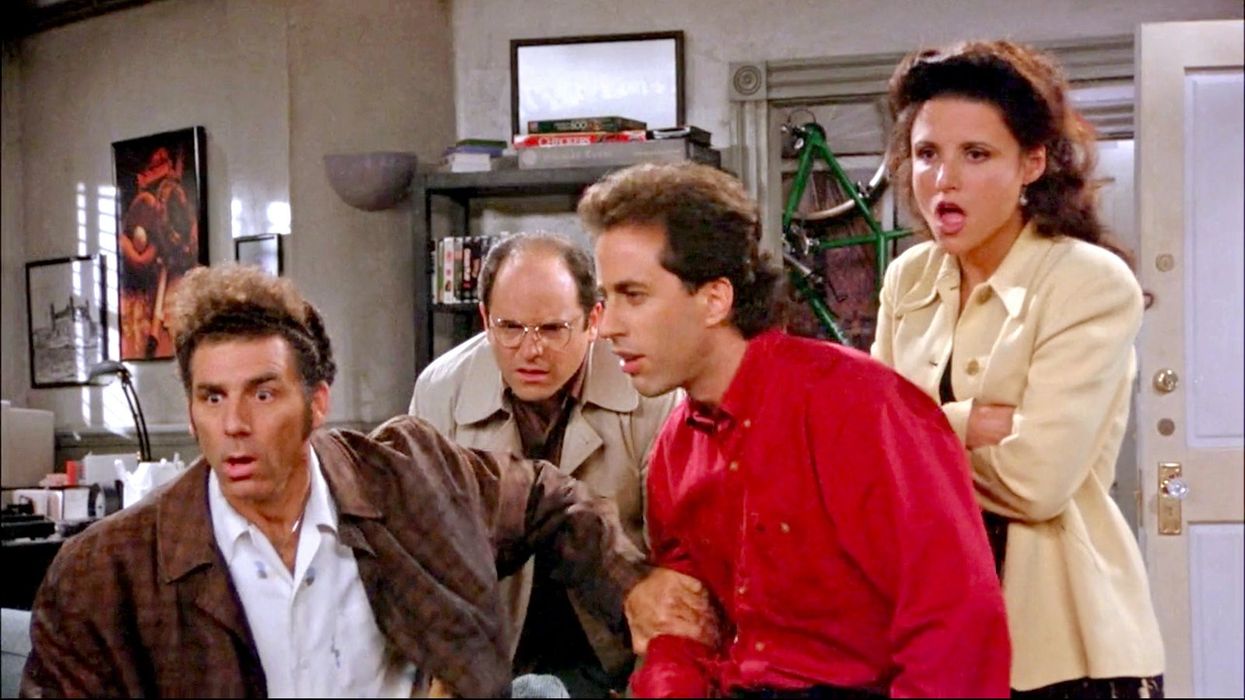Masterclass: How to Make a TV Show from Start to Finish
TV shows give films a run for their money at being the prime medium for visual storytelling, but how in the hell do you even start the process of creating one?

In the last decade, we've seen the incredible democratization of filmmaking. Inexpensive but good cameras, software, and distribution outlets have allowed creatives with budgets large and small to not only make their movies on the cheap but get them out to thousands of people who might want to see them. This kind of creative environment has made it possible for countless filmmakers to bypass the Hollywood gatekeepers and work in an industry that was previously closed to outsiders. Can't get a meeting with a movie executive—put your film on YouTube. No one wants to option your script—turn it into a film yourself.
However, the cousin of filmmaking, television, is still an industry that is not just largely inaccessible to those outside of the system but also rather mysterious and unknown to the vast majority of creatives. How do you get a TV show idea made? Who do you talk to? How do you get yourself out there as an aspiring TV show creator, showrunner, or director? To help answer some of these questions, StudioBinder has produced an informative masterclass "How to Make a TV Show" that will help you understand the entire process of TV writing and development from pilot to premiere.
There are a total of six videos in the series, all of which you should watch and take notes on if you're really serious about producing your TV show or webseries. However, assuming that the majority of you are either in the brainstorming or early writing stage, let's quickly break down the first few videos that walk you through the process of writing a pilot, including how to craft an effective treatment, creating dynamic characters, and how to make your script both marketable and memorable.
Writing a TV Show Treatment
Does your TV show have legs? That's probably the first question you should ask yourself once you come up with a TV show idea, and StudioBinder shares a bunch of tips on how to ensure that your idea turns into a good script. Seems straightforward, especially if you've written a screenplay for a film before, but writing for TV has a unique challenge that you don't usually come across in cinema: the ongoing story. For films, you hit 90 pages and you're done—you can start a brand new one. For TV shows, though, you hit 45 pages and you better have made sure that you didn't write yourself into a corner at the end of the episode. This is why StudioBinder suggests ensuring your script:
- Ends the "old life" of your protagonist
- Starts a "new life" for your protagonist
- Ends the show with a question
This way, the next episode will work toward answering that question, generating plenty of tension and intrigue to keep your audience interested and coming back for more. If you need an example to draw inspiration from, many say Cheers has a perfect pilot episode.

Creating a Dimensional TV Show Character
What makes audiences binge watch an entire series until their eyes are crusty and sore from the light of their TV sets? Yeah, a good story goes a long way and so does a cool premise, but according to StudioBinder, the characters are what makes viewers keep coming back for more. And it's not enough to make them dimensional with incredible backstories and great dialogue—you need to make the dynamics between them and the rest of the cast of characters intriguing and dramatic enough that viewers will 1.) relate and empathize with them, and 2.) want to find out what happens to them next.
So, ask yourself:
- Who is your story about?
- What has happened to your characters to define them and what is happening to them now?
- Where does your story take place and how does it affect your story and your characters?

How to Write a Marketable TV Show Script
Writing a TV pilot that can sell—that's no small feat. What exactly do you do to make your pilot not only marketable but memorable, as well? StudioBinder suggests using an approach created by South Park's Matt Stone and Trey Parker:
This happens, so, therefore, this happens. But this happens, so, therefore, this happens.
A lot of the drama manifested in a TV show comes from the numerous "pivots" the story takes. Take Breaking Bad for example. Walter White is a complacent high school chemistry who is diagnosed with inoperable lung cancer. So, therefore, he decides to cook meth to earn enough money to leave his family after his death. But, being a successful and feared meth cook not only turns Walter into a person his family doesn't know anymore but also puts his family in harm's way. So, therefore, Walter must decide what he wants more: to feel like a powerful man at the end of his life or a loving husband and father.

If you want to learn more about writing and developing a TV show, head on over to the StudioBinder blog. They've got tons and tons of free goodies for you to download and use, including worksheets for just about everything, like story structure, character development, and more. Links to the corresponding assets are in each of the video's descriptions.
Source: StudioBinder











